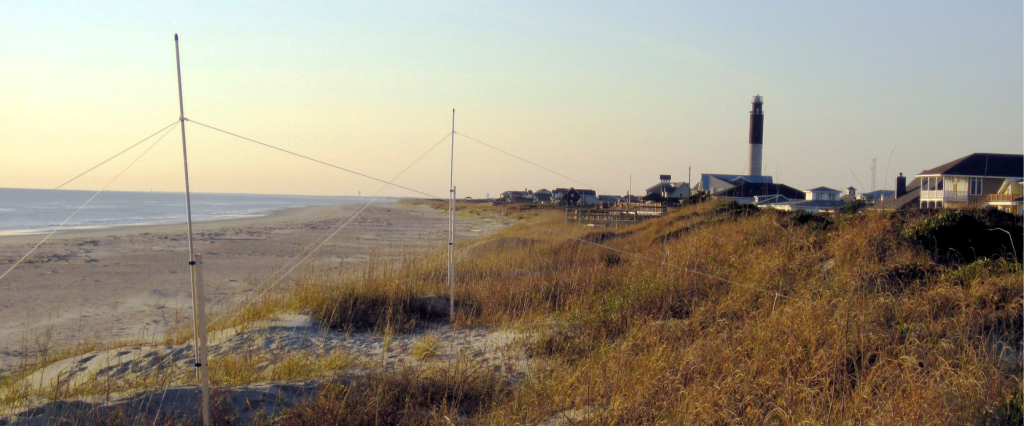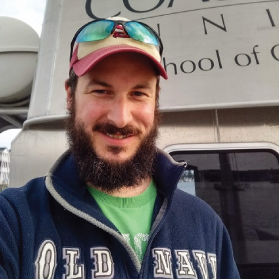

SECOORA is honored to announce the 2020 Data Challenge winner is Douglas Cahl from the University of South Carolina. Douglas will analyze SECOORA High frequency radar (HF radar) data and create a visualization tool to identify eddies.
“Being chosen as a winner of the SECOORA Data Challenge is an honor! This project aims to provide an exciting new web tool showing the location and properties of eddies within SECOORA coastal HF radar coverage areas.” – Douglas Cahl, University of South Carolina (pictured right)
HF radars are land-based systems that measure the speed and direction of ocean surface currents in near real-time. SECOORA supports 16 HF radar in the southeastern U.S.
Eddies are smaller, temporary loops of swirling water that break off from the main current. In the southeast, the eddies break off from the Gulf Steam and help transport nutrients, chemicals, and even larval fish over large distances (more info).
Unlike satellite data, HF radar surface current measurements are available 24/7, rain or shine. Leveraging HF radar’s unique data set within the SECOORA region, an eddy analysis and visualization tool will provide value for both fishermen and researchers.
Keep a look out for the new tool in 2021.
Related news

SECOORA Request for Proposals for a Data System Development, Operations, and Maintenance Service Provider
SECOORA seeks a Data System Development, Operations, and Maintenance (DMAC) service provider to act as a strategic partner while maintaining the current SECOORA Data System. Proposals are due to SECOORA by 5:00 PM ET, March 31, 2026.

Plankton Perfect: Using Imagery to Document Microscopic Marine Life
Dr. Enrique Montes is working to understand how plankton respond to changes in the ocean by capturing high resolution imagery with advanced technology. This work is funded by the Marine Biodiversity Observation Network (MBON) to use novel techniques like the Continuous Particle Imaging and Classification System (CPICS).

SECOORA Community Spotlight: Craig Harris
When Craig Harris signed on as the Emergency Management and Resiliency Coordinator for the city of Wilmington, North Carolina, he brought with him knowledge of water level sensors. SECOORA worked with Craig to install a water level sensor at the Love Grove Bridge in Wilmington, a site prone to flooding.